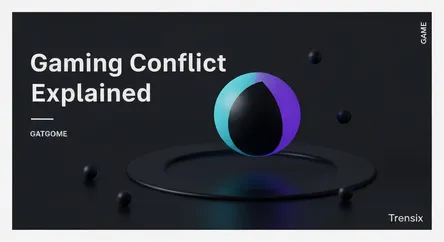Game
Gaming Conflict Lore Explained

Discover the crucial role of conflict in game lore. Learn how narrative tension and faction wars create immersive and unforgettable gaming worlds.
What is it?
In game lore, conflict is the central struggle or opposition that drives the narrative forward. It's the engine of the story, creating tension and providing purpose for the player's actions. This can manifest externally as large-scale wars between factions, political intrigue, or a battle against a singular villain. It can also be internal, focusing on a character's moral dilemmas or personal demons. From the galactic wars of Mass Effect to the personal struggles in The Last of Us, conflict provides the fundamental framework for the game's world and its history.
Why is it trending?
Gamers increasingly crave deep, engaging narratives alongside compelling gameplay. A well-defined conflict elevates a game from a simple set of mechanics to a memorable experience. Developers are focusing on intricate lore with complex conflicts because it builds a dedicated fanbase invested in the world's outcome. Ongoing games like Final Fantasy XIV or Destiny 2 use evolving conflicts to introduce new content and keep players engaged for years, proving that a strong narrative struggle is key to long-term success and player retention.
How does it affect people?
Conflict deeply affects players by creating emotional investment and a sense of purpose. It gives context to their actions, transforming a simple quest into a vital part of a larger saga. When players understand the stakes—the history of a war, the motivations of a villain, or the plight of a people—their choices feel more meaningful and their victories more rewarding. This connection to the game's struggles enhances immersion, making the virtual world feel real, consequential, and worth fighting for.